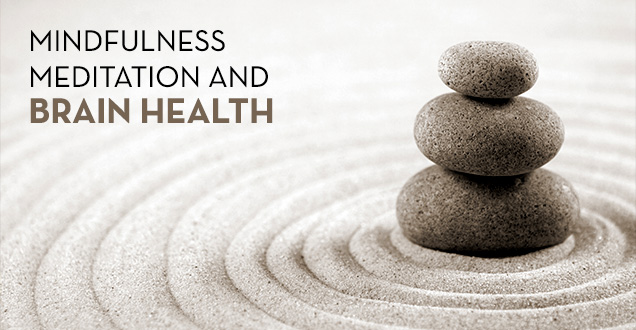
Research by Johns Hopkins University shows, “mindfulness meditation can help ease psychological stresses like anxiety, depression, and pain”. When a person becomes stressed, the adrenal gland produces a steroid hormone called cortisol to regulate and manage stress in the body. Prolonged release of cortisol can result in a wide-range of negative effects on many different psychological systems. Research is able to measure the levels of cortisol in the body and has found that mindfulness meditation helps decrease the cortisol, which is a direct result of stress levels decreasing. When stress levels are lowered we are able to make better decisions and our memory becomes stronger. Neuroplasticity, or “the brain’s ability to change structurally and functionally” is shown to increase as well. The practice of living in the moment is beginning to sound like a medical breakthrough, is it not?
Living “in the Moment”
Mindfulness meditation originated as a Buddhist meditation technique, but has become increasingly popular as the practice has shifted from the spiritual realm towards one that is supported by clinical evidence. Skepticism is turning into acceptance as the benefits of mindfulness meditation continue to be shown again and again through research. Mindfulness meditation means learning how to be present and “in the moment”. When we are living in the past, we sometimes allow ourselves to experience feelings of depression, shame, and grief. In addition, when we live in the future we sometimes allow ourselves to experience feelings of anxiety, fear, and worry.
Effects of Meditation
Practicing mindfulness meditation teaches people the ability to “let go of unhelpful feelings about the past and the future, and instead, focus their energy on the present. Concentrating on one’s environment and being calm, physically and mentally, is one of the many positive effects of mindfulness. It is not necessary to sit down to practice mindfulness meditation; “any activity that you perform where you stay fully present, completely and non-judgmentally rooted ‘in the now’ can count as a mindfulness meditation technique”, according to stress.about.com. However, the ideal environment in which to meditate is one that is quiet and comfortable. One must have a focus of attention, such as a breathing technique, and the ability to let distractions pass without interruption. There are countless benefits of practicing mindfulness meditation leading to improving one’s ability to focus, alleviate stress, and maintain control over one’s life.
How Casa Palmera Can Help
Casa Palmera wants to help you with your specific mental health needs. We want to help you find your true self and create a life based on what is genuinely important. At Casa Palmera, you will learn, grow and change as we help take you to a higher level of health, functioning and self awareness.




